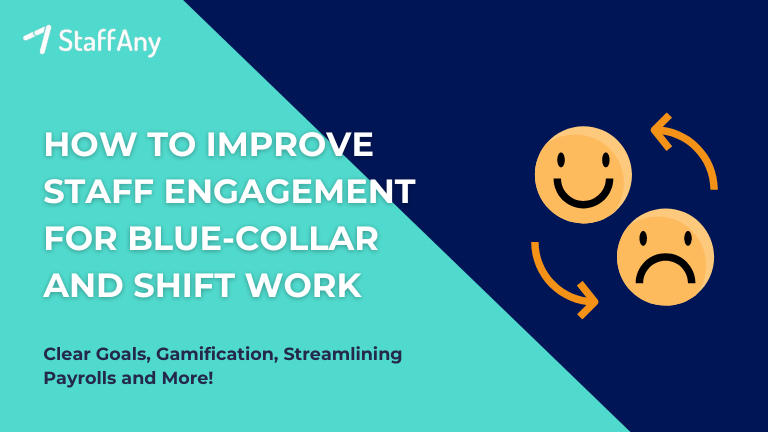Any organization, whether private or public, has specific goals to achieve. In order to achieve the organizational goals, proper employee discipline is crucial.
What is Employee Discipline?
The term ‘Employee Discipline’ refers to the rules and the codes of conduct imposed on employees by the management to either correct or prevent behaviours that are detrimental to an organization. Employee discipline is not something created to assert dominance or superiority, nor it is something designed for punishment. Instead, it is about making the work environment safe and pleasant for both employees and management. It is like a two-way pact, built based on trust between the management and employees.
Here are a few things that every manager needs to know before setting a discipline code for the employees.
1. Be aware of the law
In most of the cases, work discipline rules and termination are at the hands of the manager. However, you might put yourself in legal risk if you don’t follow the law. For example, things might go against you if you have a company policy that does not protect your right to terminate an employee at will. In other instances, showing favoritism or inconsistency to different employees, or enforcing discipline at work for the wrong reasons or in an improper manner, could get you in legal trouble as well. Thus, it is always safe to have your lawyer review your work discipline policies.
2. Establish clear and documented rules
You should never assume that your employees are already aware of what they are supposed to do and what they are not. You cannot expect your employees to arrive on time when there is nothing written about it in the rule-book. Establish clear rules with do’s and don’ts, and have it documented in writing to keep the disciplinary system active and fair.
Although these rules may vary from one organization to another, there are a few general areas that should be covered when imposing an employee discipline system.
Attire and dress-codes: Certain organizations have their unique dress-codes. However, if you have employees of the fashion-conscious younger generation, it is up to you to set the boundary for them. Convey what is acceptable, but make sure not to violate discrimination laws (e.g. religious or gender).
Work-ethic and productivity: Work-ethic and productivity involve how much you expect an employee to do for your organization, including specific duties and responsibilities. Address issues such as tardiness, excessive absenteeism in this section.
Behaviour rules: These include how employees behave with coworkers, with the seniors, how they treat customers, whether they use appropriate language or not, and so on.
Do not forget to include that any illegal actions such as theft, violence, intoxication or harassment are punishable offences and would lead to immediate termination. Get your employees to sign the rule-book so that they are aware of what the organization is expecting from them.

3. Choose the discipline method you are going to use
A disciplinary action is inflicted due to a violation of any rule, which is an offence. As long as you don’t punish someone for the wrong reasons or no reasons at all, you can choose between the punitive approach or the progressive approach. A punitive approach leads to immediate termination, while a progressive one increases the degree of your discipline when your employee violates any of the rules.
Let us categorize the acts of misconduct or offences into two broad groups:
Serious offences (major violation of rules): Insubordination, causing severe damages to the firm, causing harassment, theft, attacking a superior, etc.
Non-serious offences (minor or moderate acts of misconduct): Coming to work late, going out while on duty without permission from the relevant superior, excessive absenteeism, and doing personal work while on duty, etc.
Serious offences involve violations of very important rules, while non-serious offences involve violating important rules. Penalties such as oral warning, written warning, and suspension of work up to a period of one month without pay are generally inflicted for non-serious offences.
In the progressive method, an oral warning is issued for the first violation of a rule, written for the second, and suspension for a month or two if the same mistake is repeated. However, you should not consider the progressive approach when something serious (as mentioned above) has taken place and go for immediate termination instead.
4. Get the right mindset
You should understand that employee discipline and punishing your employee is not synonymous. If you expect that treating them harshly would bring out their best, you are entirely wrong. It will do precisely the opposite. It is always better to be more professional than emotional towards your employees.
Here are some principle objectives of employee discipline:
- To help an employee to come to terms with the policy of the company.
- To improve the performance of the employee as well as of the company.
- To increase the morale and working efficiency of the employees.
- To maintain the trust and respect between the managers and the employees.
- To ensure the safety and security of both the employee and the company.

Can you define a sound and secure disciplinary system? Here is how you can maintain an ideal disciplinary system:
- Follow a progressive approach: Unless any significant violation of rule has been committed, you should not punish your employees. Focus on preventing misconduct, and not on imposing penalties. Explain to your employees why they are facing such action and also tell them all they need to know to avoid such penalties in the future.
- Be immediate and consistent: Investigation and the proper actions should be conducted as soon as something undesirable takes place. There should be high consistency in a sound disciplinary system as well.
- Be impersonal and fair: Everybody should receive the same punishment for the same offence regardless. There should be no favouritism and no personal preferences. Discipline should always be enforced uniformly.
In short, discipline implies obedience, orderliness and maintenance of proper subordination among employees. However, it is vital for you as the manager to follow the rule-book accordingly. When you are a part of the management and you choose not to abide by the rules, the rules of employee discipline of your company might be ignored by the employees as well.











